Shein has become one of the world’s most popular e-commerce and online shopping platforms. It is known for its trendy outfits, endless variety, and budget-friendly prices. However, with the given lower than market prices and wide variety, one may ask: Is Shein legit and safe for online shopping?
While millions of users enjoy a smooth shopping experience, concerns persist regarding Shein’s data privacy, payment security, and the prevalence of counterfeit goods. Furthermore, fears of hidden tracking within its app and website raise additional red flags.
With cyber threats growing more sophisticated every day, it’s crucial to understand how well your personal and financial data is protected when using such platforms. This article explores how legitimate and safe Shein truly is, identifies the key risks and what to realistically expect, and covers other essential information you should know.
What is Shein?
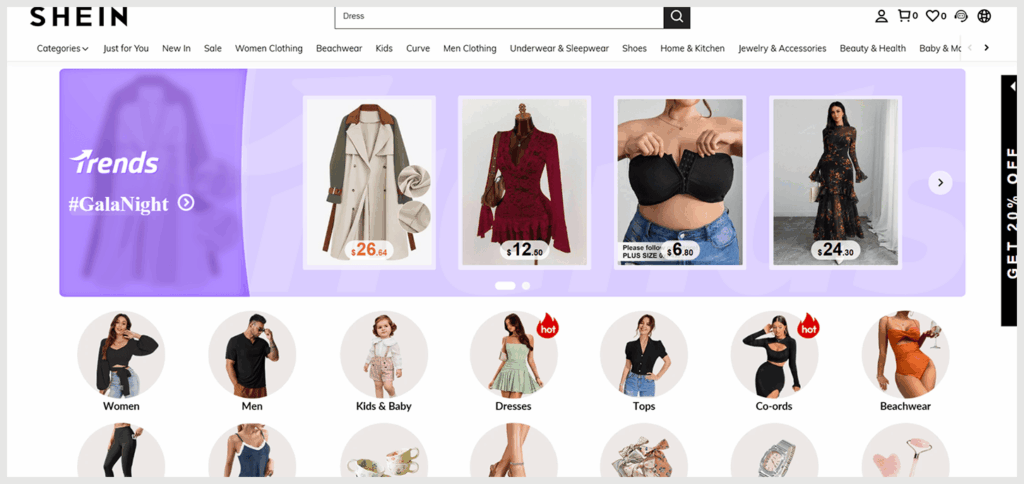
Before we go into the details about safety, let’s even talk about what Shein really is. Because, let’s be real, some of us don’t even know anything about the platform; we’ve only heard about it in passing or through online advertising.
Shein, initially named ZZKKO, was founded in China in 2008 by Chris Xu (Xu Yangtian), an SEO marketing specialist and entrepreneur. The company then changed its name to SheInside, which later in 2015 rebranded to its shorter form Shein.
The platform is known for selling relatively cheap apparel and has become popular among older Gen-Z and younger Millennial consumers. Initially, the company started as a drop shipping business. It sourced products from the wholesale market due to a lack of its own design and manufacturing.
In 2012, Shein transformed itself into a dedicated retailer and started to establish its own supply chain system. After establishing its supply chain, the company had only 3,000+ customers by 2022. However, the platform faced controversy after some reports came up regarding child labor and Chinese sweatshops.
In 2022, due to financial reasons, regulatory, and international expansion, Shein shifted its headquarters from China to Singapore. However, it kept its supply chain and warehouses in China.
The platform offers everything so cheaply that it almost feels illegal. Now, let’s explore whether Shein is legit or not.
Is Shein legit?
If we talk about its business model and legitimacy, yes, Shein is a real business, not some random scammer operating out of a basement. They’re registered, they’ve got an actual company structure, and they are shipping clothes to millions of people around the world. Generally, ordering from Shein is usually fine.
Your credit card info isn’t floating out into the void; they’ve had the standard security measures to keep things safe. Plus, they claim to have a U.S.-based privacy office that helps ensure they are compliant with regulations and address privacy concerns.
However, is it enough? Being legit doesn’t mean they are perfect. Many users have called out their shady production practices, potential labor issues, and those data leak scares that keep popping up every so often. Also, as per reports, the company sold users’ data (especially card details) on the dark web.
If you want to check whether it’s a legit business, Shein ticks all the important boxes:
- Registered internationally, paperwork in order, so the tax authorities know they exist.
- Reputable payment processors and secure checkout options.
- They have customer service. Hit up the “Contact Us” and someone will reply (eventually).
- Real warehouses and offices, not just a P.O. box in the middle of nowhere.
- Deals with big-name shipping and payment brands.
Shein is a legitimate business, but it faces significant ethical and privacy controversies (like many online shopping platforms) regarding product manufacturing, labor practices, return policy, product quality, and sustainability.
While it is not a scam, not at all, it’s important for consumers to be aware of both the pros and potential drawbacks before ordering.
Why Shein is controversial
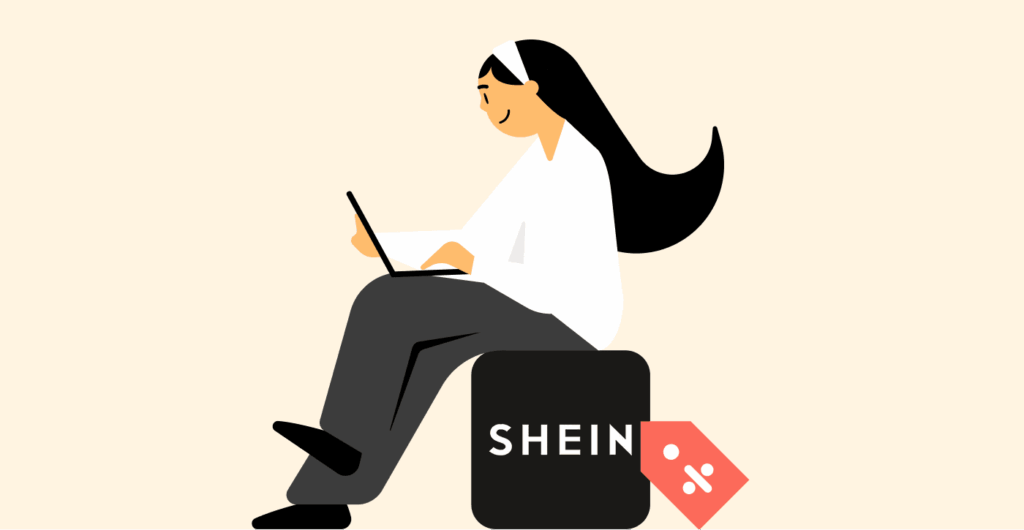
Shein is surely legit and has been around for nearly two decades now. But many still think the whole thing is a bit sketchy—and honestly, you can’t really blame them. There have been plenty of stories floating around that are making people afraid of shopping on the site.
Understanding everyone’s concerns is pretty key if you actually want to avoid getting burned and make smarter choices when you’re shopping.
- Very low pricing: The price is often so low it almost screams “sketchy.” Most users see numbers like that and instantly think, “No way this is legit, right?” Because, let’s be honest, if a regular, trustworthy company sells something this cheap, everyone would be doing it. It just doesn’t add up, so people get suspicious real fast.
- Data privacy: Shein had a data breach in 2018 where 6.42 million users had their email and encrypted passwords exposed. The SHEIN app has been reported to collect data points like keystroke patterns, clipboard data, and other device information beyond what’s necessary for shopping. Though Shein is working to improve their data security, incidents like this will always leave consumers with doubt and fear.
- Ongoing copyright lawsuits: Independent designers and top brands sued Shein multiple times for copying their designs. Whether justified or otherwise, this practice does seem legally and ethically troubling, considering copyright law. And for creators, it poses a barrier to making a living and encourages the “scam” narrative.
- Inconsistent quality: When a consumer receives a product that differs from the photo or presentation in the product description, they begin to feel scammed – or that the company is scamming people, even though this might be an issue of quality control, not an issue of fraud.
- Long shipping time: Shipping delays in receipt of the product sometimes make consumers question the business behind the buying platform’s legitimacy, primarily when tracking information does not provide them a standard way of knowing ‘where’ their package is at.
- Sizing issues: If the sizing is inconsistent, a consumer will feel like they have been scammed regarding the specifications of the product, which causes the product not to fit well based on the sizing chart.
- Shady marketing tactics: Highly aggressive marketing tactics like countdown timers, fake Shein discounts, and claims of ‘limited time’ can feel manipulative to the consumer instead of being a unique selling proposition of limited time in marketing.
- Data collection practices: Many shoppers feel a level of discomfort with the amount and types of data the platform collects, which creates a red flag regarding privacy.
- Fake reviews: Several users may feel that the reviews are fake, therefore, not trusting the rating associated with the applicable item.
- Customer service problems: Having trouble getting a hold of customer service, or not being able to get a satisfactory resolution to an issue, can feel scammy.
While Shein is not a scam in the traditional sense—you generally receive the items you order—many customers report issues with the overall shopping experience. These problems often stem from poor quality control or communication, leading to disappointment.
Is Shein safe for credit cards?
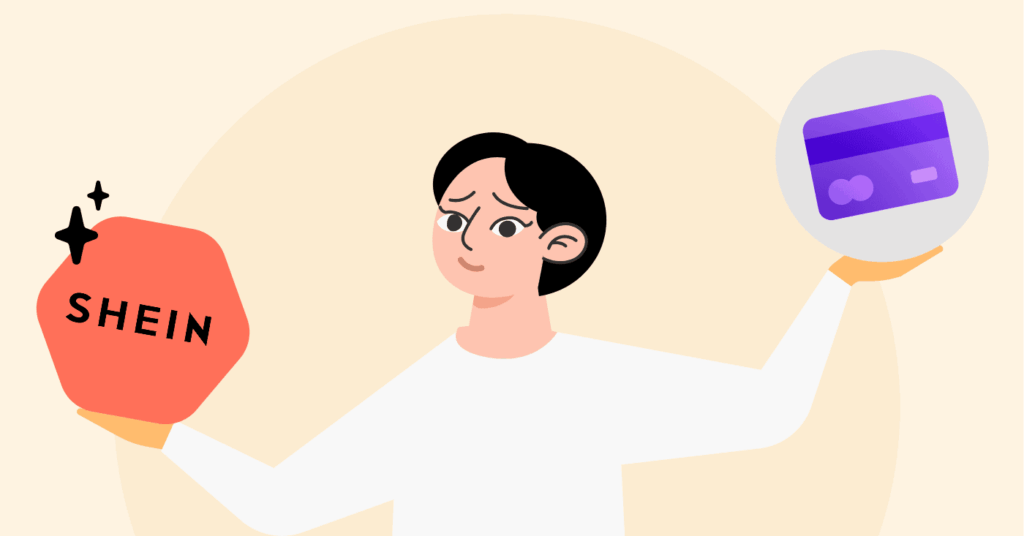
This is basically the number one priority for a lot of us. Before hitting the checkout, most people will hesitate. 99% of the time, it’s not about the amount; they are wondering: Is Shein safe for a credit card? What if I use a direct bank link with a debit card? Will I not regret this later?
Well, the short answer is that Shein is safe for your credit card. They use standard security measures to ensure that your payment info is safe. But no online platform can be 100% risk-free, right?
Shein adopts SSL encryption protocols to protect your data while you are checking out. This is the same type of protection that any large retailer would have. Some other measures they take to ensure your payment is secure include:
- Their payment processes comply with PCI DSS regulations.
- They use secure payment gateways.
- Tokenize your credit card data.
However, risks will always be there, no matter how many security measures are in place. Some of the potential risks are:
- Just like other sites that sell online, Shein could be vulnerable to hackers.
- Even though data breaches aren’t really a common occurrence, we cannot rule out the possibility of it happening.
- Shein has lots of pop-ups, some of which could lead you to third-party websites.
Guidelines to keep your credit card safe
- Use one specific credit card dedicated to online shopping.
- Check your statements regularly.
- Set up transaction alerts.
- Consider using a third-party service like PayPal.
- Never save your payment information to the app.
Most users say they complete their online transactions and have no issues. But always keep your financial info tracked when shopping online.
Is Shein secure for debit cards?
Although Shein also accepts debit card payments and even processes them in a secure way, using debit cards for online shopping comes with much higher risks than using credit cards.
To be on the safer side, it is always recommended to use a credit card over a debit card for any online purchase. The reason is that credit cards offer better protection against fraud.
Risks of using debit cards
- They provide direct access to your bank account.
- Limited fraud protection than credit cards.
- Potential to lose money quickly due to fraud.
- It takes a longer time to resolve disputes.
Safer alternatives
- Credit cards have the most protection against fraud.
- PayPal provides an additional layer of protection.
- Prepaid cards minimize potential losses.
- Digital wallets include features that provide additional protection.
If you plan to use a debit card, make certain that your account has a strong overdraft protection plan and be vigilant about reviewing your transactions. Set up any alerts on your account to ensure you are notified promptly for any charges.
Is Shein safe for Apple Pay?
Yes, Apple Pay is one of the safest payment methods you can use at Shein or any e-commerce site.
Why?
- Use Face ID or Touch ID as biometric authentication.
- It uses dynamic security codes for every transaction.
- No actual card numbers are stored on the device.
- Merchant never sees your real card information.
- It comes with built-in fraud protection.
How it works on Shein
- Once you reach the checkout, choose Apple Pay as your payment option.
- Then confirm your transaction using Face ID, Touch ID, or passcode.
- It then processes the transaction for the items without sharing your card details with the merchant.
- At the end of everything, you will receive instant confirmation that your payment was processed.
Apple Pay greatly reduces the chance of payment fraud because your real card information never makes it to Shein’s servers, so it is a great option for cautious shoppers.
Is the Shein app safe?
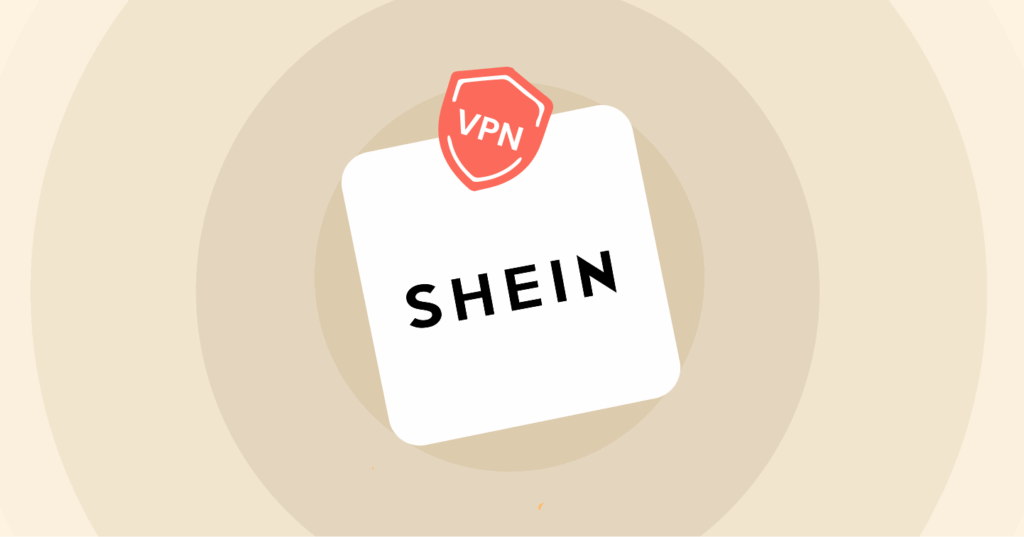
In case you prefer to shop on your phone, Shein has official apps for both Android and iOS. You’re only safe with the Shein apps if you downloaded them from the official sources (Google Play Store or Apple App Store).
The app has a similar interface to the website and employs the same security measures concerning your data and payments.
That said, you should always be vigilant about third-party app stores that tempt you with “modified” or unofficial Shein apps. These apps may have malware, so use only ones from the official sources.
Here’s why the official Shein app is safe:
- Frequent security updates.
- Encrypted data transmission.
- Secure payment processing.
- It has two-factor authentication options.
Privacy concerns regarding the app:
- Extensive data collection.
- Ability to track location.
- Can access your device information.
- Use of data for marketing purposes.
Tips for app safety:
- Read and adjust privacy settings.
- Limit location access permissions.
- Create and use strong, unique passwords.
- Enable two-factor authentication, where you can.
- Always update the app.
To improve safety, always verify the URL before entering your personal or payment information. Be wary of false apps that appear to be Shein’s official app.
If you are worried about the app permissions, you can shop through Shein’s mobile website on your browser rather than downloading the app.
How to safely shop on Shein
If you’ve decided to take the plunge, you should probably equip yourself with some essential precautionary measures. That will go a long way to help you shop smarter. Here are some tips for shopping smart.
- Study reviews like a religion and research the product very well: This is your #1 weapon. Don’t just pay attention to the star rating of the item. Take note of people’s comments regarding how the fit, feel, and fabric. Check any photos shared by customers, and you will get the real truth about the product. Leave old reviews and focus on recent ones, like ones from the past few months, because quality can change with time.
- Forget about size, go by measurement: Forget about what you normally wear in US sizes (and size in general), because Shein’s sizing can vary greatly. Always check the item’s size chart and measure yourself. (Order based on your measurements, not what you see on the tag.)
- Read and understand the returns policy (and privacy policy): Shein does have a return policy, but these do not apply for eternity or after you have already used the item. Always check the latest policy before you buy plenty of items. While you’re at it, skim their privacy policy for “data use.”
Key things to know about Shein’s return policy:
- You have 30 days from the day you received the item to return an item.
- It must be unworn and in its original condition.
- You (the customer) will pay return shipping (typically $7-15).
- Refunds will be processed in 7-10 business days.
- Certain items will be marked as final sale.
Having these policies at your fingertips will help you avoid disappointment if you need to return something.
- Check product details before purchasing: Check what it is made from, care instructions, and if there are limitations or special features.
- Don’t get your staples there: Looking for the perfect black pants for work, or just a classic white shirt? Shein is probably not for you. While some of their clothing is good, some can also be of quite poor quality. This hit-or-miss makes buying wardrobe staples there a gamble. You can save money by buying good basics somewhere else. Shein is better for trendy clothing and seasonal items you may wear a few times that you don’t need to last forever.
- For an extra layer of privacy, consider using a VPN: Your payment information is encrypted, but your internet browser data and shopping history are still visible to your internet provider. A service like NordVPN (currently on over 70% off) encrypts the entire web connection, giving you extra privacy beyond just Shein with all your browsing. Also, if you’re shopping on unsecured public Wi-Fi, a VPN protects you from “Man-in-the-Middle” attacks, where a hacker could intercept your data during transmission, even if SHEIN’s checkout uses SSL.
- Don’t expect too much: You are shopping for fast fashion at cheap prices, and like fast food, you will likely get low quality.
- Start small: Consider placing a small test order before making larger purchases.
- Use a secure method of payment: Credit cards, PayPal, or other digital wallets give you protection that a debit card does not. So it is best to make larger purchases with a method of payment that is better protected.
Why is Shein so cheap?
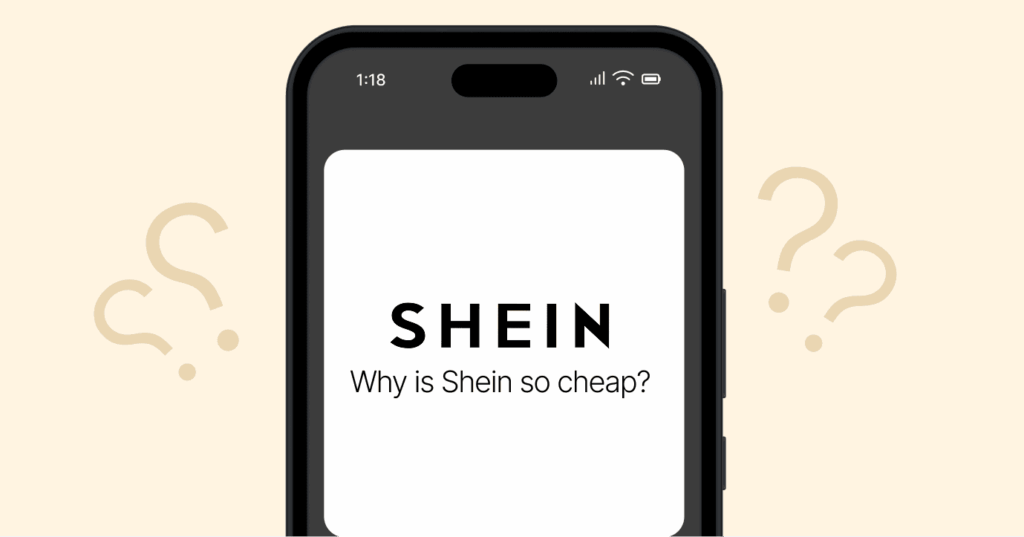
It’s the question everyone asks when they see the super low prices. How can a dress cost less than your morning coffee? The truth comes down to a viciously efficient business model and choices that keep costs low at every stage.
Here’s a summary of the reasons why Shein’s prices are so low:
- Ultra-fast fashion on steroids: While Zara invented the concept of “fast fashion,” Shein has converted “ultra-fast fashion” into a science. They don’t just predict trends; they drown them. By having a network of small, agile suppliers and real-time data from search trends and social media, they can design, produce, and ship a new product in days. This super-fast delivery means they produce what they know will sell out in days, so they eliminate the waste of producing too much inventory.
- Direct-to-consumer model: Shein sells to you directly through their app and website. No physical store, no middleman, no markup of selling through another retailer. All of those savings? They pass along in the form of lower prices.
- Materials quality: Let’s be real, you are not going to find high-end, natural linen or organic cotton here. The low prices are all because of fabrics like polyester, nylon, and rayon. To be clear, synthetic materials are cheaper to produce than natural fabrics but less durable and less breathable.
- Economies of scale (like, really huge scale): Shein operates at a very high level of volume. Producing thousands of an item at once equates to a very low cost per individual unit.
- Digital-first marketing: Instead of spending millions on celebrity campaigns and billboards, Shein’s marketing lives online. They have an army of micro influencers and user-generated hauls on TikTok and Instagram. This “haul culture” is incredibly effective and is free advertising that keeps their customer acquisition costs pretty low.
Shein payment method options
It’s good to know what payment options are available to you and how safe they are so that you can choose which one best suits your needs.
| Payment method | Security level | Processing time | Fraud protection |
|---|---|---|---|
| Credit Cards | High | Instant | Excellent |
| Debit Cards | Medium | Instant | Limited |
| PayPal | High | Instant | Excellent |
| Apple Pay | Very High | Instant | Excellent |
| Google Pay | High | Instant | Good |
| Afterpay | Medium | Instant | Limited |
| Klarna | Medium | Instant | Limited |
| Diners Club | High | Instant | Excellent |
| Maestro | Medium | Instant | Limited |
| American Express | High | Instant | Excellent |
| Venmo | Medium | Instant | Good |
| Cash App Pay | Medium | Instant | Good |
| Zip | Medium | Instant | Limited |
| Affirm | Medium | Instant | Limited |
- Most recommended: Credit Cards and PayPal provide the best mix of security and fraud protection.
- For extra security, Apple Pay and Google Pay add another level of authentication.
- Buy now, pay later: Though convenient, it may have limited dispute resolution compared to a traditional payment method.
Choose payment options that provide solid buyer protections and dispute resolution.
Is Shein safer than Temu?
Both companies are legitimate and not a scam. They are both Chinese-based e-commerce sites and have received similar criticism with respect to data privacy and sourcing.
From a purely cybersecurity viewpoint, both utilize appropriate encryption to secure transactional data. The main difference between them is that Temu is a relatively newer marketplace (launched in 2022) and sells everything from clothes to home goods. Shein, on the other hand, focuses on fashion and has been in business longer.
You may have a similar shopping experience on both of them, but Shein again has a more seasoned, though still controversial, reputation in the fast-fashion industry. For a broader perspective on safe online shopping, you can also read our analysis of is AliExpress legitimate and safe?
| Comparison aspect | Shein | Temu |
|---|---|---|
| Encryption methods | Standard encryption | Tends to use more modern encryption methods |
| Data privacy policy | Basic privacy protection | More transparent data privacy policy |
| Two-factor authentication | Available | Enhanced 2FA implementation |
| Refund process | Standard process | Streamlined refund process |
| Payment methods | PayPal, credit cards, Buy Now Pay Later (smaller selection) | Wider variety of payment options |
| Payment processing | Smooth and glitch-free, according to users | Standard secure processing |
| Customer service speed | Standard response times | Generally faster customer service response |
| Platform focus | Fashion-specific features and interface | Broader marketplace features |
| Mobile app functionality | Fashion-focused app features | Similar functionality with a broader scope |
| Quality testing | More established protocols for clothing | Standard testing across product categories |
| Product range | Primarily fashion and lifestyle | Broader range of product categories |
| Quality consistency | Fashion-related issues | Similar consistency challenges across categories |
In short, both are real businesses with millions of users worldwide. Safety concerns are mostly around data privacy (does the platform share your purchase and contact info with other sellers?), counterfeit products (does the seller sell fakes?), and quality inconsistency (does the product look different from the description?).
Your choice of where to shop from (Temu or Shein) all boils down to product offerings and what you personally prefer, not safety.
Though there are many areas to consider when it comes to safety when shopping online. Data privacy is still the major concern for many users, no matter which platform they choose.
FAQs
Shein does collect data for marketing, and this often makes some shoppers wary. But also, you can change your privacy preferences and shop from the website instead of the app.
Contact Shein customer service with pictures of the defect to start a return and have them refund your money. Remember, using a credit card gives you better protection if you have to dispute charges against the company.
Make sure you always look at the site URL to be sure it is shein.com before checking out. Fake sites will usually have some sort of spelling errors or deals that seem too good to be true, even for Shein.
While technically possible, dropshipping from SHEIN is risky. Using their product images can lead to copyright infringement claims against your store. Always create your own original marketing materials.
